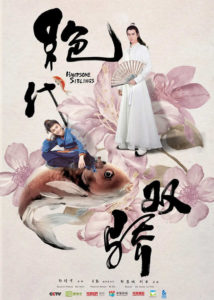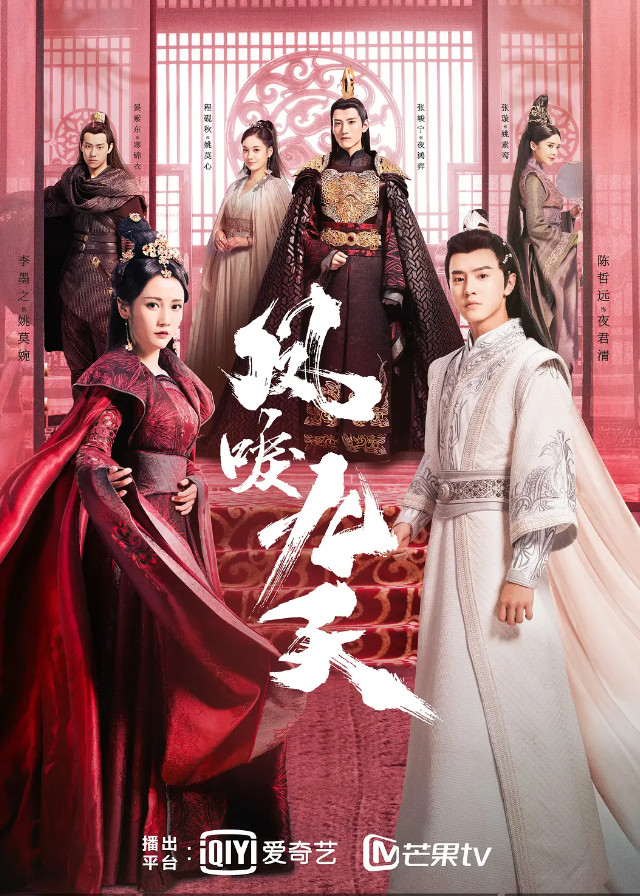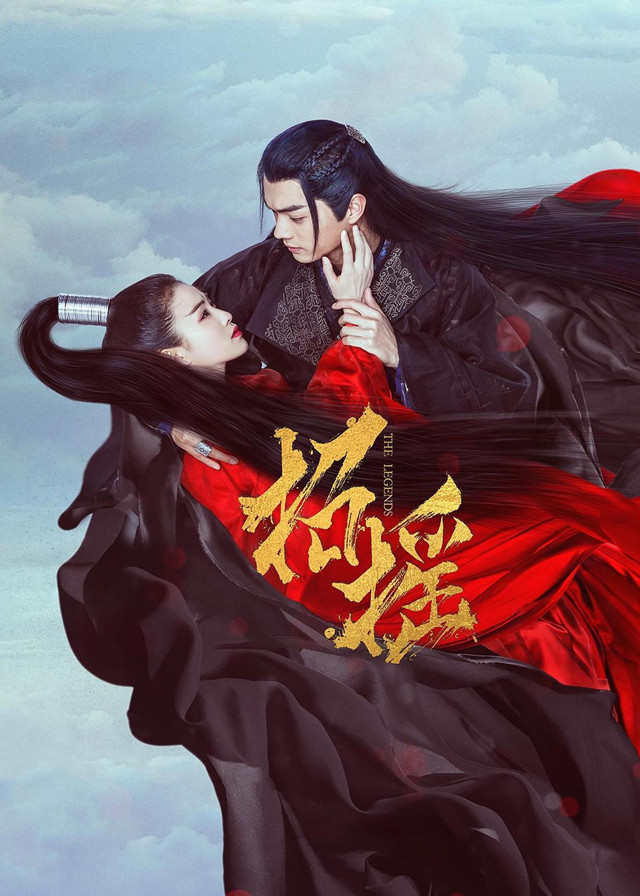Renascence Episode 19 Recap
> Renascence Recap
The grandmaster Jue Chen was summoned by Emperor Ye Hongyi to understand why the lingzhi in the palace had withered overnight. Jue Chen divined that malicious and filthy matter had tainted the lingzhi, causing its rapid decline. When pressed for the source, Jue Chen’s divination pointed to the palace's northwest corner, specifically Eunuch An Bing Shan's alchemy room. Ye Hongyi immediately ordered Prince Ye Junqing to investigate the matter.
Ye Junqing arrived at the alchemy room and found numerous fake medicinal herbs. He learned that Eunuch Liu and Eunuch Li, who were responsible for the herbs, had already been taken to the imperial prison. Ye Junqing then went to the prison where An Bing Shan was brutally interrogating the two eunuchs. Ye Junqing confronted An Bing Shan about the switched herbs in the alchemy room.
An Bing Shan claimed he had discovered the fraud himself and quickly arrested the culprits. Emperor Ye Hongyi soon arrived, questioning An Bing Shan about the integrity of his medicinal pills and mentioning Jue Chen's ominous predictions. An Bing Shan vehemently denied any wrongdoing, dismissing Jue Chen as a "wicked man" and suggesting that Jue Chen had orchestrated the lingzhi's appearance.
Ye Hongyi countered this, revealing that a botanist who had served in the palace for decades confirmed the lingzhi was ancient and had no connection to Jue Chen. Despite An Bing Shan's claims of diligently testing every pill himself, Ye Hongyi found his excuses flimsy. Blaming An Bing Shan for the blunder in the alchemy room, Ye Hongyi stripped him of a year's salary and sentenced him to twenty lashes.
Later, Yao Su Luan visited An Bing Shan, expressing superficial concern for his injuries. She reminded him that Jue Chen's presence in the palace signaled trouble for them. With the alchemy room's operations halted, she urged him to quickly cover up his misdeeds. An Bing Shan admitted that many palace maids used for pill testing were "practically half dead," and there were quite a number of them.
Yao Su Luan, reiterating her earlier warnings about the dangers of excessive killing, insisted that he handle these "disasters" without leaving any trace. Her maid, Cai Ying, overheard their conversation and was visibly shaken. That night, An Bing Shan ordered his subordinates to dispose of the maids' bodies discreetly. However, Ye Junqing ambushed them as they were throwing the bodies into a dry well. Ye Junqing ordered a coroner to perform autopsies.
The coroner later confirmed that all the palace maids had died from poison in the pills, and An Bing Shan had meticulously recorded their names and the dosages they were given. Ye Junqing reported to Ye Hongyi that the pills were still experimental and had only been tested on these maids. Enraged by An Bing Shan's "disregard for human life" and "cruelty," Ye Hongyi contemplated the case.
Ye Junqing suggested that An Bing Shan's removal was a "silver lining" and praised Jue Chen's foresight for preventing more deaths. He also mentioned that he had given the deceased maids a proper burial outside the palace. Ye Junqing recommended Li Guofu, the Minister of the Supreme Court, to oversee the case. However, Ye Hongyi declined, citing Li Guofu's heavy workload, and instead appointed Zhang Haolin, known for his fairness, to lead the investigation.
Recognizing Jue Chen's continuous good work, Ye Hongyi officially appointed him as the new Imperial Grandmaster of the Kingdom of Chu. Yao Mowan, dressed in a black robe, entered the imperial prison to interrogate An Bing Shan. She dismissed Zhang Haolin, instructing him to deny her presence there. An Bing Shan, fearing his impending death, initially tried to shift the blame to the Dous. Yao Mowan challenged him, bringing up the deaths of Liu Xing and the poisoned palace maids.
An Bing Shan admitted his part but refused to shoulder all the blame, resolving to "pull someone down with him." He confessed that Dou Shiming had supplied him with contraband military gunpowder for pill-making, but most of it was illegally sold for profit. Dou Shiming laundered the money through an antique business and recorded all transactions and names in a ledger. Yao Mowan quickly deduced An Bing Shan's role in connecting Dou Shiming with various officials to facilitate the smuggling.
An Bing Shan confirmed he had introduced Dou Shiming to numerous officials, including Huang Yu Cheng, the water transport head in the north, Han Chao, the person in charge of the canals in the south, and dozens of other local waterway officials. Yao Mowan, furious at such rampant corruption, instructed Zhang Haolin, who had discreetly re-entered to record the confession, to keep her involvement a secret.
After Zhang Haolin left, Yao Mowan continued her interrogation, asking about the monkshood gum in Yao Moxin's prenatal medicine, which she knew could cause a miscarriage. An Bing Shan, trembling, claimed he was "only carrying out the order," implying the Emperor's command. He explained Ye Hongyi's motivations: the late Empress Yao Moxin's strong persona and her repeated interference in state affairs, coupled with persistent rumors of her flirtatious relationship with Prince Ye Junqing.
A flashback showed Ye Hongyi bestowing a sword upon Ye Junqing before his departure for battle. During a feast, Ye Junqing presented Yao Moxin with a Guanyin statue for their unborn "Zhong'er," expressing his concern. Dou Shiming subtly fanned the flames of suspicion by implying an illicit relationship between Ye Junqing and the empress.
Ye Hongyi, deeply troubled by the rumors and unwilling to have a royal heir "born with criticism," ordered An Bing Shan to discreetly add monkshood gum to Yao Moxin's prenatal medicine to induce a miscarriage. He strictly instructed An Bing Shan not to harm her body, to ensure she received the best medicinal herbs afterwards, and expressed his sole desire for her to remain his empress.
Hearing this, Yao Mowan's suspicions were confirmed, and she reflected on the "wrongful love of the past" that would be "repaid in this life." Meanwhile, Yao Su Luan, now Concubine Li, went to offer Ye Hongyi some peppermint tea. She had arrived just as Zhang Haolin presented An Bing Shan's confession to the Emperor. Ye Hongyi, upon reading the confession, was enraged and immediately ordered Zhang Haolin to investigate the matter thoroughly.
Though Yao Su Luan made her departure, she had overheard enough to realize the gravity of the situation. At the Yao Residence, Dou Shiming knew his escape was futile. He quickly instructed his sister, Dou Xiang Lan, to hide his ledger, believing that An Bing Shan would surely confess under torture.
He explained that the ledger was a "double-edged sword" – a "lifesaver" that would compel his corrupt allies to protect him, or could be used as leverage for clemency with the Emperor if all else failed. He urged Dou Xiang Lan to hide it securely. Soon after, Zhang Haolin arrived at the Yao Residence with soldiers to search for evidence. Dou Shiming, feigning innocence, remained calm, proclaiming his righteousness and inviting them to search.
Despite a thorough search, Zhang Haolin found nothing and had to report back to Ye Hongyi empty-handed, stating that Dou Shiming vehemently denied the charges and claimed An Bing Shan's accusation was pure defamation. While Zhang Haolin still believed An Bing Shan due to Dou Shiming's notorious corruption and the specific details in the confession, he lacked concrete physical evidence. As Ye Hongyi fretted over the lack of conclusive evidence, Ye Junqing arrived, presenting a box full of gold.
He explained that this was tangible proof of the Dous' illicit gunpowder smuggling. Ye Junqing elaborated that after the previous gunpowder incident, he had continued his investigation, discovering the Zi Xuan Association, which Dou Shiming used to launder money and transport gunpowder. Dou Shiming converted the illicit funds into gold, melted it down to remove any identifying marks, and then shipped it back to his territory by boat.
Ye Hongyi, instead of being pleased, grew wary of Ye Junqing's ability to uncover such a major case while confined to the palace. Ye Junqing humbly apologized for acting without imperial decree and accepted any punishment. He urged Ye Hongyi to thoroughly investigate the gunpowder smuggling and the wider corruption among high-ranking officials. Zhang Haolin offered to assist Ye Junqing in the investigation. However, Ye Hongyi, feeling threatened by Ye Junqing's efficiency, chose a different path.
He ignored the offer for them to collaborate, instead summoning Qian Mian. He then declared that Zhang Haolin would preside over the case, with Qian Mian assisting, and ordered Dou Shiming's immediate arrest. Ye Hongyi then dismissed Ye Junqing, assuring him that the case would be handled properly and he should rest.
Knowing that the ledger was the definitive piece of evidence, Ye Junqing instructed Han Jinyi to infiltrate the Yao Residence and retrieve it for Zhang Haolin, emphasizing that this would ensure Dou Shiming's inescapable demise. Han Jinyi successfully located the hidden ledger. Soon after, Dou Shiming and An Bing Shan were brought before the public for execution. The imperial edict declared them guilty of smuggling gunpowder, colluding with foreign nations, treason, and corruption, sentencing them to immediate death.
Dou Shiming attempted a last-ditch effort to save himself, claiming he possessed a ledger containing a list of many high-ranking corrupt officials, and urged Ye Hongyi to review it before making a final decision. In response, Ye Hongyi produced the very ledger Han Jinyi had found, signaling that Dou Shiming's last desperate move was futile. With a stern command, Ye Hongyi ordered their immediate execution. Dou Shiming and An Bing Shan were beheaded.
After the executions, Ye Hongyi addressed the court, acknowledging that the ledger implicated many trusted officials. He expressed concern that a full investigation would lead to widespread fear, distrust, infighting, and instability within the Kingdom of Chu, ultimately harming the empire. Therefore, he declared that he would not read the list, allowing all involved officials to "breathe a sigh of relief." He warned, however, that any future acts of rebellion or corruption would be met with "even harsher punishments." With that, Ye Hongyi threw the ledger into a brazier, burning the evidence of widespread corruption and choosing stability over complete eradication.















